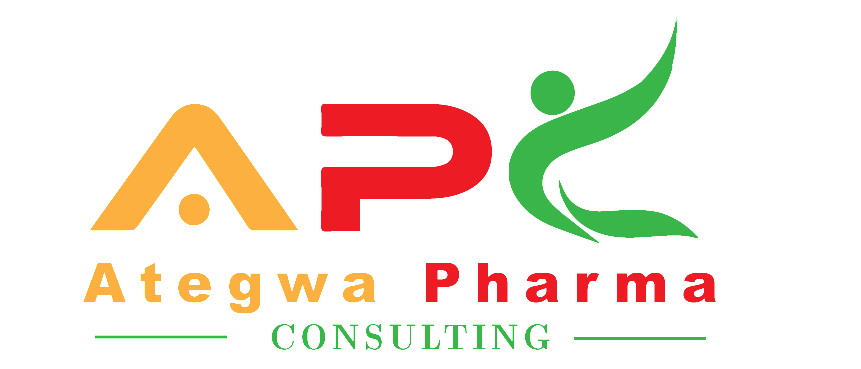Understanding Healthcare Project Management
Healthcare project management is a critical discipline that ensures the successful execution of initiatives aimed at improving patient care and operational efficiency. At Ategwa Pharma Consulting (APC), we recognize the complexities involved in managing healthcare projects and the importance of effective leadership in navigating these challenges. In this blog, we will explore key aspects of healthcare project management, best practices, and how APC can support your organization in achieving its project goals.
Understanding Healthcare Project Management
Healthcare project management refers to the planning, execution, and oversight of projects within the healthcare sector. These projects can range from implementing new technologies, such as electronic health records (EHR), to constructing new facilities or enhancing patient care processes. Given the unique nature of healthcare, project managers must balance multiple priorities, including regulatory compliance, stakeholder engagement, and resource allocation.
Key Stages of Healthcare Project Management
1. Initiation: This phase involves identifying potential projects and evaluating their feasibility. Stakeholders assess goals, resources, and expected outcomes to prioritize initiatives that will have the most significant impact on patient care and organizational efficiency.
2. Planning: Once a project is approved, detailed planning begins. This includes defining the scope, establishing timelines, allocating resources, and identifying potential risks. A comprehensive project plan is essential for ensuring that all team members understand their roles and responsibilities.
3. Execution: During this phase, the project team carries out the planned activities. Effective communication and collaboration are crucial as team members work towards achieving project milestones. Continuous monitoring of progress helps identify any deviations from the plan early on.
4. Monitoring and Evaluation: Throughout the execution phase, it’s vital to track progress against established benchmarks. This allows for timely adjustments to keep the project on track and ensure that it meets its objectives.
Best Practices for Successful Healthcare Project Management
Engage Stakeholders Early: Involving stakeholders—such as healthcare providers, administrators, and patients—early in the process fosters buy-in and ensures that diverse perspectives are considered in decision-making.
Focus on Compliance: Healthcare projects must adhere to strict regulations governing patient privacy and safety. Understanding these regulations is crucial for mitigating risks and avoiding potential legal issues.
Utilize Technology: Implementing project management software can streamline communication, track progress, and enhance collaboration among team members. Tools like dashboards can provide real-time insights into project performance.
Prioritize Training: Ensuring that all team members are adequately trained on new systems or processes is essential for successful implementation. Ongoing training can help address any challenges that arise post-implementation.
The Role of APC in Healthcare Project Management
At APC, we leverage our extensive experience in clinical research and project management to support healthcare organizations in executing successful projects. Our team of specialists provides tailored solutions that address the unique challenges faced by healthcare providers.
Healthcare project management refers to the planning, execution, and oversight of projects within the healthcare sector. These projects can range from implementing new technologies, such as electronic health records (EHR), to constructing new facilities or enhancing patient care processes. Given the unique nature of healthcare, project managers must balance multiple priorities, including regulatory compliance, stakeholder engagement, and resource allocation.
Key Stages of Healthcare Project Management
Initiation: This phase involves identifying potential projects and evaluating their feasibility. Stakeholders assess goals, resources, and expected outcomes to prioritize initiatives that will have the most significant impact on patient care and organizational efficiency.
Planning: Once a project is approved, detailed planning begins. This includes defining the scope, establishing timelines, allocating resources, and identifying potential risks. A comprehensive project plan is essential for ensuring that all team members understand their roles and responsibilities.
Execution: During this phase, the project team carries out the planned activities. Effective communication and collaboration are crucial as team members work towards achieving project milestones. Continuous monitoring of progress helps identify any deviations from the plan early on.
Monitoring and Evaluation: Throughout the execution phase, it’s vital to track progress against established benchmarks. This allows for timely adjustments to keep the project on track and ensure that it meets its objectives.
Best Practices for Successful Healthcare Project Management
Engage Stakeholders Early: Involving stakeholders—such as healthcare providers, administrators, and patients—early in the process fosters buy-in and ensures that diverse perspectives are considered in decision-making.
Focus on Compliance: Healthcare projects must adhere to strict regulations governing patient privacy and safety. Understanding these regulations is crucial for mitigating risks and avoiding potential legal issues.
Utilize Technology: Implementing project management software can streamline communication, track progress, and enhance collaboration among team members. Tools like dashboards can provide real-time insights into project performance.
Prioritize Training: Ensuring that all team members are adequately trained on new systems or processes is essential for successful implementation. Ongoing training can help address any challenges that arise post-implementation.
The Role of APC in Healthcare Project Management
At APC, we leverage our extensive experience in clinical research and project management to support healthcare organizations in executing successful projects. Our team of specialists provides tailored solutions that address the unique challenges faced by healthcare providers.
Our Services Include:
Clinical Trial Monitoring: We ensure compliance with regulatory standards while managing clinical trials effectively.
Onboarding Training: In partnership with the James Lind Institute, we offer training programs designed to equip healthcare professionals with essential skills.
Project Management Consulting: Our experts provide guidance on best practices for managing complex healthcare projects from initiation through completion.
Conclusion
Effective healthcare project management is vital for improving patient care and optimizing operational efficiency within healthcare organizations. By adopting best practices and leveraging expert support from Ategwa Pharma Consulting, your organization can navigate the complexities of healthcare projects successfully.
If you’re interested in learning more about our services or how we can assist with your next healthcare initiative, please contact us today! Together, we can drive meaningful change in the healthcare landscape.

